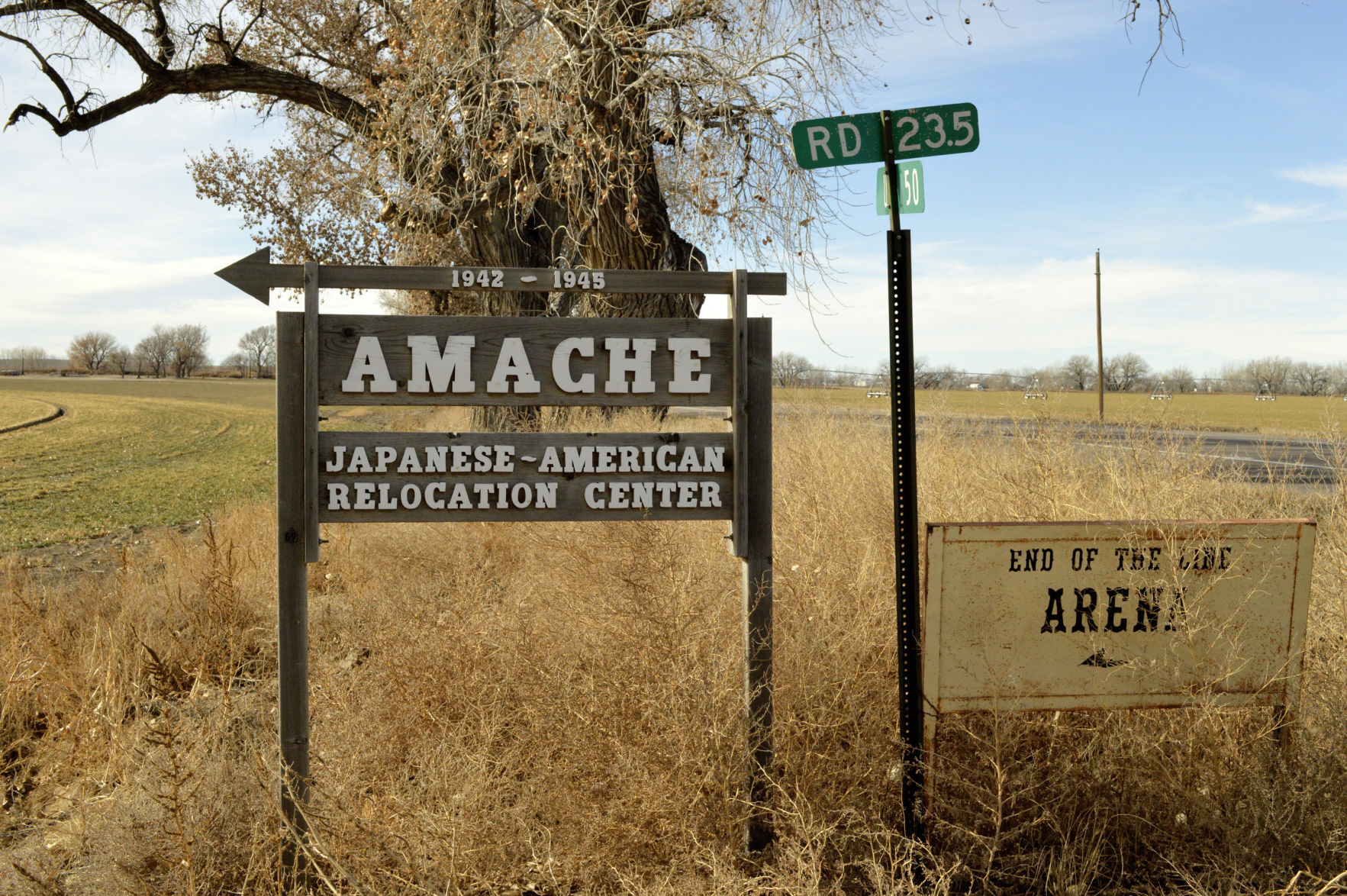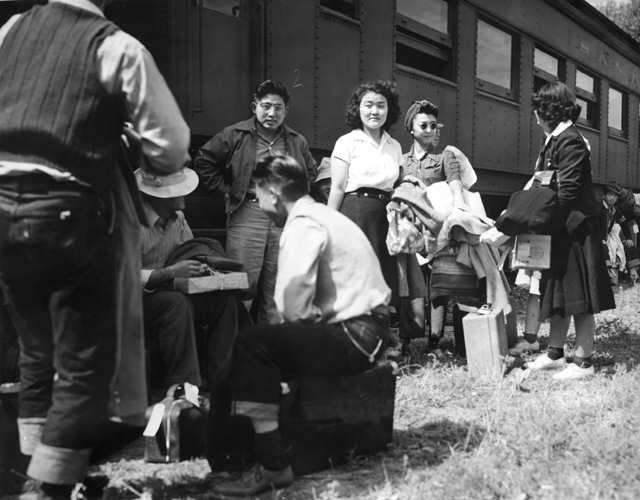President Biden signs legislation designating Colorado’s Camp Amache a national historic site

President Joe Biden on Friday signed bipartisan legislation to add the site of a World War II-era Japanese American internment center in the southeast corner of Colorado to the National Park System.
Sponsored by Colorado lawmakers U.S. Reps. Joe Neguse and Ken Buck and U.S. Sens. Michael Bennet and John Hickenlooper, the Amache National Historic Site Act designates Camp Amache, on 600-acres about a mile outside Granada in Prowers County, as a national historic site. The bill passed both chambers of Congress unanimously last month.
“I have waited many, many years to see the day where we can be certain that Amache – as a place of reflection, remembrance, honor and healing – is protected for our current and future generations,” said Bob Fuchigami, who was 11 years old when he and his family were incarcerated at the camp, in a statement released by the bill’s sponsors. “My parents did not live to see this day. The time is not only right; it is long overdue.”

More than 7,000 Americans of Japanese ancestry, nearly all from Southern California, were imprisoned at the camp from 1942 to 1945 under an executive order issued by President Franklin Roosevelt after the attack on Pearl Harbor. Through the war, the federal government forcibly relocated 120,000 Japanese Americans – more than two-thirds of whom were American citizens – from the West Coast to 10 camps across six states, including the Granada War Relocation Center, the Colorado camp’s formal name.
“Our nation is better today because of the lessons we have learned from our past,” said Buck, a Windsor Republican, in a statement. “The Amache National Historic Site Act is important because it recognizes the horrible injustices committed against Japanese Americans and preserves the site for people throughout Colorado and the United States.”
Calling the internment episode “a dark stain on our past,” Hickenlooper said in a statement that elevating the site to the parks system “will preserve the survivors’ stories and ensure that history never repeats.”
The Colorado Democrat, who was scheduled to attend the bill-signing, said in a video recorded Friday morning at the National Japanese American Memorial in Washington that the new law means that “future generations will be sure to remember the hardships and the perseverance of the families that suffered at Amache and the other camps.”
Bob Fuchigami Testifies on the Amache National Historic Site Act(via YouTube)ErnestLuning, Colorado Politics
ernest.luning@coloradopolitics.com
https://www.coloradopolitics.com/content/tncms/avatars/4/9f/437/49f43708-eabc-11e8-95f5-6bd26bd8275d.795315d1c1f9d6e50136091af6448829.png
“When we work together, when we listen and lead locally, we can accomplish a lot. This bill proves it,” said Neguse, a Lafayette Democrat and chairman of the House Subcommittee on National Parks, Forests and Public Lands, in a statement. “With the support of countless community advocates and the powerful stories of survivors and descendants, we’ve been able to authorize the site’s designation in record time.”
Saying the nation “must face the wrongs of our past in order to build a more just and equitable future,” Interior Secretary Deb Haaland, applauded the president and Congress in a statement
“After visiting Amache and meeting with survivors and descendants, I was moved by their resilience and the way in which Colorado communities came together during and after the injustice to support Japanese Americans. May we all be inspired to do the same today for all our fellow citizens,” she said.
Haaland joined Bennet and Neguse at the site last month to mark the 80th anniversary of Roosevelt’s executive order.
The national historic site designation was first proposed in legislation introduced in 2006 by Republican U.S. Sen. Wayne Allard, a Greeley Republican. Buck, whose congressional district includes the site, introduced a bill to study the camp’s inclusion in the National Parks System in 2018, with companion legislation sponsored by Bennet and then-U.S. Sen. Cory Gardner, a Colorado Republican and Hickenlooper’s predecessor. The camp has been a national historic landmark since 2006.
According to the National Park Service, remnants of the camp include a cemetery, watch towers, the military police compound, a water tank, roads and some concrete foundations, as well as trees that were planted by internees.

In a statement, Bennet thanked the bill’s sponsors and others who have long advocated for the designation, including survivors of Camp Amache and theirs descendants.
“The incarceration of Japanese Americans during World War II at sites like Amache is a shameful part of our country’s history,” the Colorado Democrat said. “Our bill will preserve Amache’s story to ensure future generations can learn from this dark chapter in our history.”
The camp is open to the public and managed by the Amache Preservation Society, the parks system said in a release. Granada High School students work with the society to provide tours of the site and a nearby museum, something the parks system plans to continue as it moves to acquire the land from the Town of Granada, its current owner. That process should take more than a year.
Incarceration survivor Ken Kitajima expressed gratitude to the lawmakers for steering the legislation through Congress in a statement released by bill sponsors.
“As a young boy at Amache, I never thought I’d see an America that cared about my story. I am now a 91 year old veteran who served in the U.S. Air Force during the Korean War, 1950-1954,” he said. “When signed by the president, long-lasting U.S history will be made.”















